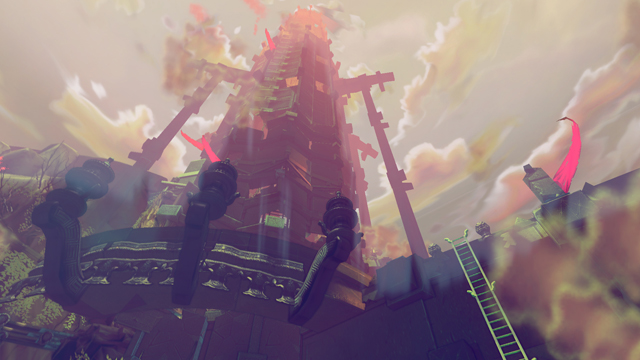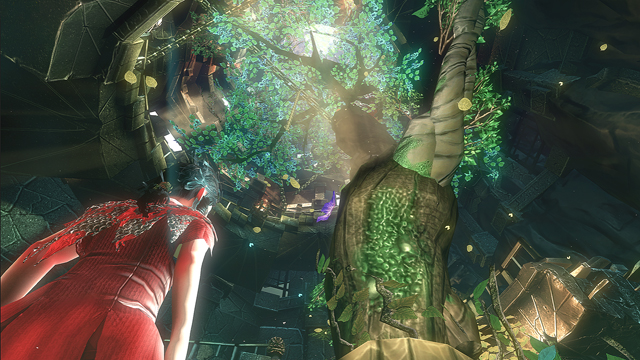A flawed gem.
With a story revolving around a mythical tower to the sky, it’d be easy to wonder if Swordtales’ first game, Toren, is their own Tower of Babel. Attempting to deliver effective storytelling and 3D graphics on an indie studio’s budget is a lofty goal in and of itself, and then there’s getting it to just work correctly. I played through the game three times over this past weekend, and I feel confident saying that no punishment shall be delivered from up on high for this game. For what it does lack in technical execution, it makes up in artistic direction and engaging, nuanced storytelling.
Our protagonist is Moonchild, who begins her life in the eponymous tower. Players learn the controls by guiding her as a toddler to a sword, being carefully observed by a mysterious mage. Before starting the game, all players know is that as revenge for man’s foolhardy endeavor to touch the sky, the sun has refused to descend from its high perch, eliminating time and eroding life from the land. Moonchild is fated with having to climb the tower straight to the top, though it is unclear why until the end. There’s also the matter of a pesky dragon blocking her path.
This tale is delivered through a remarkable, though flawed, presentation. Blocky objects and low fidelity textures litter each scene. But all put together, through remarkable use of color and imagination, Toren manages to pull off what Shadow of the Colossus did back in the PS2 era, leaving a beautiful memory. Rather than give players a fully controllable camera, it is in a fixed position, able to be pivoted in a limited scope around its anchor. However, this ultimately creates guided framing for each scene—you see what the developer wants you to see. And I have no complaints because I found myself taking screenshots all the way through the journey.
When she grows to the size of a small child, the mage gives her an enchanted tree to plant nearby, and she sets off on her adventure. Initially full of wonder, she walks with a step that is notably bouncy and energetic. And it is not long before her curiosity is prodded by the sight of wandering deer, a constellation puzzle, a telescope with mysterious visions, and the aforementioned tree, which rapidly grows before her eyes, carrying a sword in its branches.
It is also up here that Moonchild encounters the opportunity to dream, initiated by small statues of mages or monks. These serve as surreal asides to the tale but also bolster its foundation. Taking place in peculiar worlds that exist outside of reality, Moonchild is tasked with filling strange symbols on the ground with salt, rewarding her with poems detailing the history of the tower, the mage, and herself, though they remain rather cryptic in nature. Some of these dreams are optional, but they are easy to find and make the difference between an esoteric plot and a complete narrative. I believe players could feel satisfied either way, but for a game about two hours in length, it is worth seeking out this additional information.
And oddly, I’m not complaining about the length in the least. Much like the acclaimed Journey, this is a game I see myself periodically playing again in the future just to relax, gain some more nuance, and feel a sense of completion. Even though the story sees Moonchild straight through to adulthood, the developers manage to keep the whole experience short and sweet without any questionable jumps in plot or belief… though it does make the tower seem a little less formidable than advertised.
Unfortunately, the story lacks the amount of emotional resonance I was hoping for when I saw trailers for the game a few months ago. Unlike either Shadow of the Colossus or Journey, I didn’t find myself choked up about the events. I suppose that although Moonchild is put through a unique and brutal struggle to ascend the tower, she herself shows little emotional investment.
Actually, given her fate to perform this task, you’d imagine that she’d rebel against it, showing anger or being deeply upset. Despite growing physically, she doesn’t seem to grow emotionally. Parts of the mage’s poetry suggest that Moonchild is to abandon her own desires for the greater good, not that she is left with much choice in the matter. But even a hero sacrificing herself to save many would exhibit aspects of inner conflict.
Aside from this, I only have a few minor gripes. There were a few bugs, such as Moonchild’s arm animation becoming frozen after holding onto an object and being unable to control her after performing a scripted violent action in one of the dreams. But these were very infrequent, and I never encountered the same bug more than once.
There are some small enemies in a few areas of the game that mostly serve as nuisances =—easy to avoid, shake off, or kill, once you acquire the sword. They also have strange animations, causing them to awkwardly disappear and reappear as they wander the ground. Given that they are not directly connected to the story, and their origin is never made clear, I’d rather they just not be there. The boss fights are interesting puzzles in their own way that other encounters feel meaningless. It’s not a combat game.
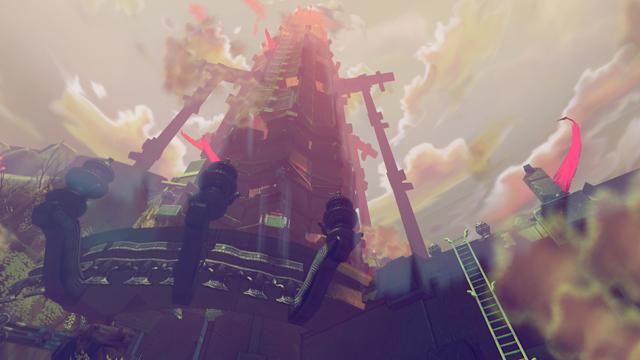
Regardless of my complaints, Toren still successfully brings home an intriguing experience, rife with beauty and intrigue. Its technical merits or lack thereof may frustrate some, but I feel no worse for wear. If you’re looking for a short, colorful adventure to entertain you for a few hours, it’s hard to go wrong here. Just watch your step.
-
Colorful, artful design throughout the whole game
-
Intriguing journey following the entire life of girl climbing a tower
-
Which lacks some emotional resonance
-
Supplementary dreams add additional backstory
-
Short length lends itself to repeated plays through
-
Some bugs in execution and oddly low resolution textures and objects
-
Meaningless enemies to contend with
Toren
-
Toren #1
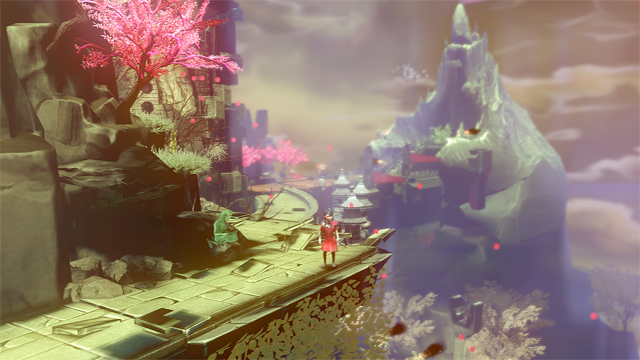
-
Toren #2
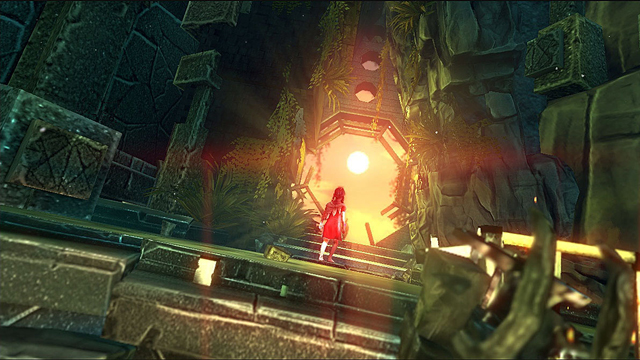
-
Toren #3
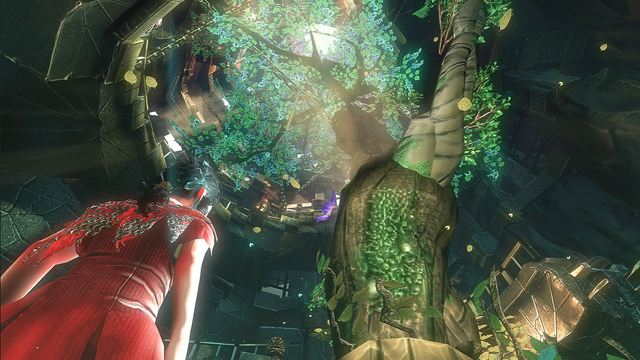
-
Toren #4
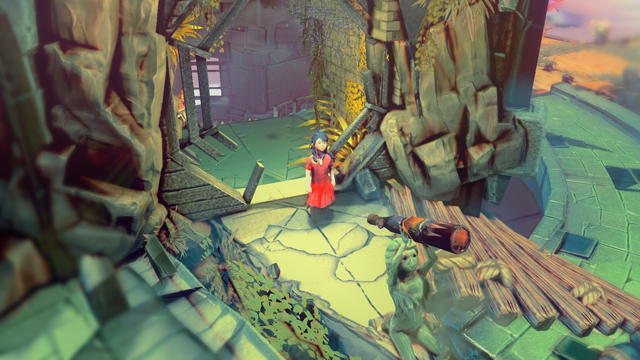
-
Toren #5
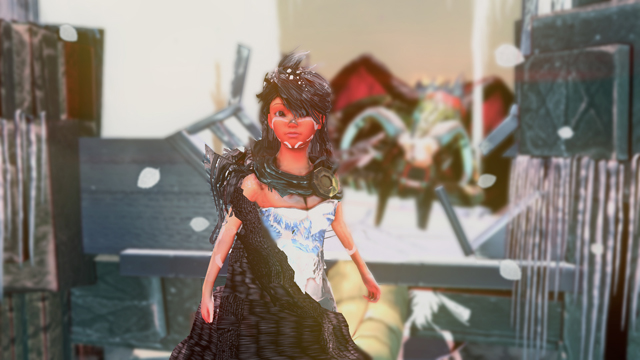
-
Toren #6
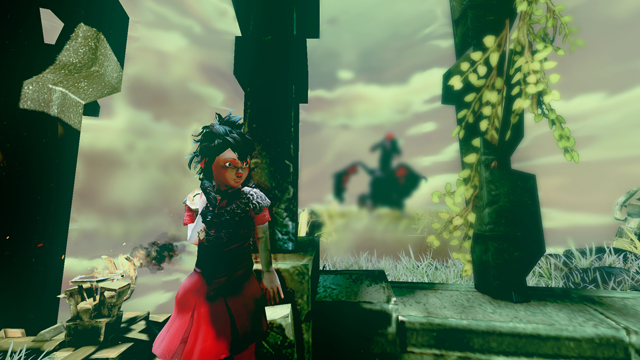
-
Toren #7
